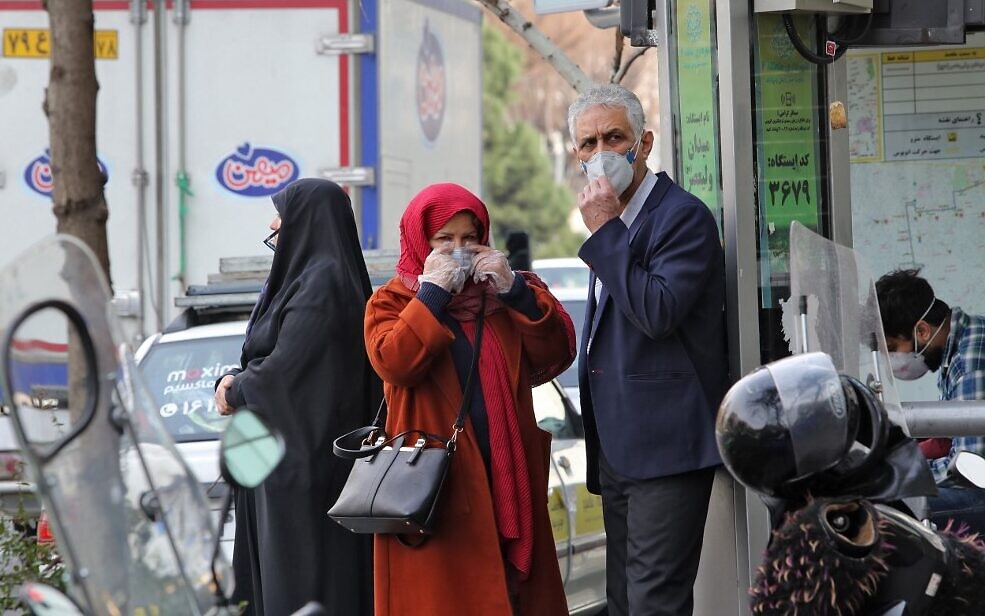As the COVID-19 pandemic sweeps the globe, Iran has been among the countries hardest hit by the rapidly spreading virus.
The Islamic Republic has seen 20,000 confirmed cases and 1,433 total deaths, including more than 1,200 new cases and 149 deaths in the last day alone.
In conversations with The Globe Post, experts said an incompetent and corrupt government coupled with harsh U.S. sanctions, many reimposed in the wake of the U.S. withdrawal from the Iran nuclear deal, are making the coronavirus outbreak in Iran a particularly deadly one.
According to Iran’s health ministry, one person in Iran dies from the disease every ten minutes and an additional 50 people become infected every hour.
How Sanctions Make Iran’s COVID-19 Problem Worse
Rather than ease sanctions on Iran as the country struggles to contain a deadly outbreak, the Trump administration imposed additional sanctions on several countries that purchased petroleum products from Iran last year.
“Even medicines are, for all practical purposes, sanctioned. Critical medicine and medical devices that are essential for controlling COVID-19 cannot be imported,” Muhammad Sahimi, an Iranian political analyst and professor of chemical engineering at the University of Southern California told The Globe Post.
“This is economic terrorism, pure and simple.”
Iranian government officials like Foreign Minister Javad Zarif have criticized the U.S. sanctions for hampering the country’s ability to fight the novel coronavirus and preventing the government from buying medical supplies needed to treat COVID-19 patients.
In a video message to the public, Zarif said the danger Iranians face is in large part thanks to “unjust” restrictions imposed by the U.S. government.
“The Iranian economy collapsed because of sanctions on banking, sanctions on the oil sector and petrochemicals, and other sectors of the economy,” Hooshang Amirahmadi, an Iranian American academic and political analyst told The Globe Post.
“All of that has an indirect impact on healthcare. If the sanctions weren’t there, there would have been more hospitals, more hospital beds, and more medicine available.”
An Anemic Response
Amir Afkhami, author of A Modern Contagion: Imperialism and Public Health in Iran’s Age of Cholera, told The Globe Post that the pandemic’s arrival in Iran was predictable due to the country’s close commercial relationship with China.
He said while sanctions hamper Iran’s ability to effectively deal with its coronavirus outbreak, the bulk of the blame for Iran’s inability to contain the virus lies with an “anemic” response from the Iranian government.
“Iran didn’t take any significant precautionary measures to restrict or monitor travelers from China even after the outbreak of the disease was announced by the Iranian government,” Afkhami said.
“The government’s lack of transparency and unwillingness to take robust measures, such as social distancing and quarantines … probably help spread the virus rapidly.”
Amirahmadi also criticized the Iranian government response to coronavirus, saying the government’s failure to alert the public or begin quarantining early on had little to do with U.S. sanctions. He added that religious institutions in Iran have also failed to adequately respond to the COVID-19 pandemic.
“There were problems on the religious side because the coronavirus started in the holy city of Qom.” Amirahmadi said. “They didn’t want to quarantine that city because the mullah and the clergy would not allow that.”
Lessons From the Past
Afkhami said the Iranian government’s lack of a robust response to COVID-19 is especially concerning because the country made so much progress in containing pandemic cholera during the 20th century.
In the late 19th and early 20th centuries, Iran suffered brutal outbreaks of cholera, with a lack of a public health administration and government efforts to conceal the outbreaks worsening their severity.
By the time the El Tor strain of cholera entered Iran in 1965, however, the country had significantly improved its capacity to contain pandemic cholera. Having developed a far more robust public health infrastructure in coordination with the International Office of Public Health over the preceding decades, Iran was able to rapidly identify and isolate infected individuals.
Iran also quickly developed a highly effective vaccine, limiting the outbreak to the eastern half of the country and eradicating it within a matter of several months.
Afkhami said Iran was able to contain the El Tor strain of cholera thanks in large part to cooperation with other countries, including the United States, arguing that technical contact and technical expertise played an important role in dealing with pandemic cholera and could do the same in the fight against COVID-19.
“Over time, the secondary effects of sanctions will affect morbidity and mortality and that is without a question,” Afkhami said. “It is to America’s benefit if sanctions are removed and I think the biggest benefit of removing sanctions is not necessarily in the medical goods category, but in the technical expertise category that is often forgotten in the sanctions debate.”
No Relief
On Friday, the Trump administration said it would not offer sanctions relief to Iran, claiming that humanitarian assistance to the country is not sanctioned.
While humanitarian aid to Iran is not currently directly under U.S. sanction, sanctions on other sectors of the economy have discouraged foreign banks from conducting business with Iran, including on humanitarian deals.
Falling oil exports and heightened inflation due to U.S. sanctions could also serve to make medicines in Iran less affordable.
Earlier this week, U.S. Congresswoman Ilhan Omar called for an immediate suspension of sanctions against Iran in response to the pandemic.


